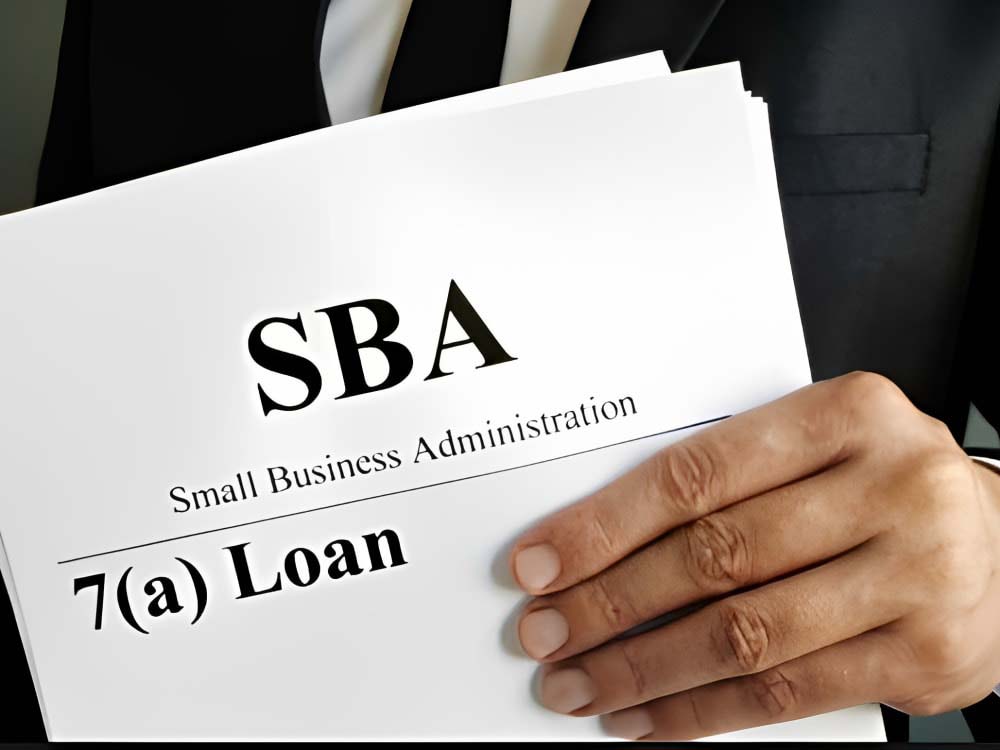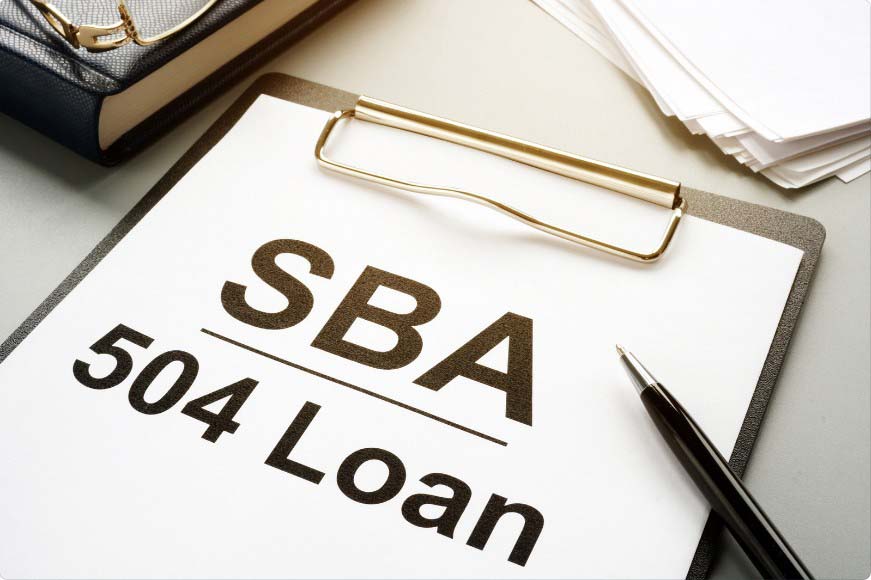Have you ever wondered which SBA loan best fits your business needs?
After all, the right business loan can help you scale your business, get the fastest way to millions of dollars in funding, and enjoy the life you deserve.
If you’re feeling overwhelmed by the options, you’re in good company.
With 25 years of experience as a financial coach and banking expert, I’ve helped many entrepreneurs navigate the complexities of SBA loans.
Today, I’m here to guide you through the essentials of choosing between the SBA 7(a) and 504 loans.
You have big plans for your business, such as expanding your operations, purchasing new equipment, or even acquiring a new property.
Fantastic! But the tricky part comes: figuring out which loan is right for you.
The Small Business Administration (SBA) offers two popular loan options, the 7(a) and 504, each tailored for different needs.
Understanding the key differences can save you time, money, and a lot of hassle.
Stick with me, and I’ll break down the distinctions between these two loan types, highlighting their unique benefits and potential drawbacks.
So, don’t go anywhere just yet. Grab a coffee, settle in, and scroll down to learn more about SBA 7(a) vs. 504 loans.
This might just be the crucial information you need to make an informed decision and take your business to the next level. Trust me, you won’t want to miss this!
Understanding SBA Loans
The Small Business Administration (SBA) offers several loan programs tailored to meet different business needs.
These loans are highly sought after due to their competitive interest rates and favorable terms, resulting from the SBA’s backing.
This guarantee often translates to more attractive rates and conditions than standard business loans, making SBA loans a preferred choice for many entrepreneurs seeking reliable financing.
For most businesses, the decision often narrows to two main options: SBA 7(a) loans and SBA 504 loans.
The 7(a) loans are highly versatile, catering to various business needs, including everyday working capital.
In contrast, 504 loans are specifically designed to finance major fixed assets like equipment and real estate.
Given their distinct purposes, it’s important to understand the unique features and benefits of each to make an informed decision that best aligns with your business goals.
Choosing Based on Your Needs
The SBA 7(a) loan is likely your best option if your business needs extend beyond real estate or equipment.
These loans are designed to cover various business needs, providing significant flexibility to manage various financial demands such as working capital, inventory purchases, and business expansion initiatives.
This flexibility allows business owners to address immediate financial needs while planning for future growth.
For businesses specifically looking to finance the acquisition or improvement of real estate or equipment, both SBA 7(a) and 504 loans are viable options.
Here’s a deeper look to help you decide which loan best suits your specific needs:
When to Choose an SBA 7(a) Loan
- You need working capital to buy inventory and supplies or to fill cash flow gaps.
- You have real estate or equipment needs but don’t meet the job creation or public policy goals required for a 504 loan.
- You prefer a faster application process to access funds more quickly.
- You are comfortable with a variable interest rate, which may fluctuate over time.
- You can provide the necessary collateral to secure the loan.
When to Choose an SBA 504 Loan
- Your financing needs involve purchasing, leasing, renovating, or improving commercial real estate or equipment.
- You can demonstrate that your business meets job creation, job retention, or other public policy goals.
- You can manage a slower and more involved loan application process.
- You prefer the stability of a fixed interest rate, ensuring consistent repayment amounts.
- You want the financed asset itself (real estate or equipment) to serve as collateral for the loan.
Key Differences: SBA 504 vs. 7(a) Loans
Understanding the key differences between SBA 504 and 7(a) loans is essential for selecting the right financing option for your business.
Both loan types offer unique advantages and potential drawbacks, so consider your specific circumstances and business goals carefully.
You can secure the financial support necessary to grow and succeed by choosing the loan that best suits your needs.
| Feature | SBA 504 Loan | SBA 7(a) Loan |
| Purpose | Financing for purchasing, leasing, renovating, or improving commercial real estate and equipment | Versatile funding for working capital, equipment, business expansion, and refinancing existing debt |
| Loan Amount | Up to $5.5 million per project, with a maximum of $16.5 million for multiple projects | Up to $5 million |
| Interest Rates | Fixed rates | Variable or fixed rates |
| Application Process | Typically, a longer loan application process involves partnering with Certified Development Companies (CDCs) | Generally faster, especially through the Express program |
| Collateral | The asset being financed (real estate or equipment) | Collateral required for loans over $350,000 |
| Down Payment | 20% to 30% of the loan amount | 10% to 30% of the loan amount |
| Loan Terms | Up to 25 years | Typically, up to 25 years |
| Eligibility | Must meet job creation or public policy goals | More flexible, suitable for a wider range of businesses |

What are SBA 7(a) Loans?
SBA 7(a) loans are immensely popular due to their flexibility and broad range of uses.
These loans can be utilized for working capital, purchasing equipment, and other business-related expenses.
The application process is akin to standard bank loans but can take longer unless you opt for the Express program, which offers a quicker turnaround.
The SBA guarantee ensures competitive interest rates, both fixed and variable. However, securing a 7(a) loan requires meeting stringent eligibility criteria, often including the provision of collateral.
Typically, a down payment of 10% to 30% of the loan amount is required. Depending on the loan size, you might also incur additional fees.
Despite these requirements, SBA 7(a) loans remain a favored financing option due to their advantageous terms.
Requirements for SBA 7(a) Loans
To qualify for an SBA 7(a) loan, your business must:
- Be a for-profit entity based in the U.S.
- Demonstrate reasonable owner-invested equity in the business.
- Show that you have exhausted other financing options.
- Meet SBA’s small business size standards.
- Provide collateral for loans exceeding $350,000.
Lenders will also have their own criteria, typically expecting a good to excellent personal credit score (FICO score of 670+), solid annual revenue, and a minimum of two years in business.
Required documentation includes profit and loss statements, tax returns, personal financial information, and a detailed business plan.
Pros of SBA 7(a) Loans
- Competitive rates, often lower than other business loans.
- Flexibility to cover various business needs.
- Ability to finance equipment along with other business expenses.
Cons of SBA 7(a) Loans
- Multiple fees, including guarantee fees and down payments.
- Potentially large down payments are required.
- Collateral requirements for securing the loan.
What are SBA 504 Loans
SBA 504 loans are specifically designed to finance the acquisition and improvement of fixed assets such as equipment and commercial real estate.
The application process can be lengthy, and a down payment of 20% to 30% of the loan amount is required. However, there is no guarantee fee for the 2023 fiscal year.
Eligibility criteria for 7(a) loans are somewhat similar but may be easier to meet based on the business size and type of equipment being financed.
SBA 504 loans, typically larger in size, are available through Certified Development Companies (CDCs). Funding limits are up to $5.5 million per project.
Requirements for SBA 504 Loans
To qualify for an SBA 504 loan, your business must:
- Be a for-profit entity based in the U.S.
- Have a net worth of less than $15 million.
- Have an average net income of less than $5 million over two years.
- Demonstrate reasonable owner-invested equity.
- Show that you have exhausted other financing options.
- Meet SBA’s small business size standards.
504 loans are secured by the purchased equipment or property, with documentation requirements similar to those for 7(a) loans. Interest rates on 504 loans are fixed, but specific ranges should be discussed with the CDC.
Pros of SBA 504 Loans
- No guarantee fee, reducing the cost of borrowing.
- Large loan amounts available, up to $5.5 million per project.
- Long repayment terms, up to 25 years, providing financial stability.
Cons of SBA 504 Loans
- Limited to financing equipment or real estate.
- Longer and more involved application process.
- Must be applied for through the CDC.

SBA 7(a) vs. 504 Loans: Final Thoughts
Today, we’ve covered some ground in exploring the SBA 7(a) and 504 loans.
Hopefully, you now have a clearer understanding of which option might best fit your business needs.
Remember, the right loan can make all the difference in achieving your business goals, whether you want to expand your operations, invest in new equipment, or secure real estate.
Choosing between the SBA 7(a) and 504 loans involves understanding your specific needs and how each loan aligns with those needs.
The 7(a) loan offers flexibility and can cover a wide range of expenses, while the 504 loan is tailored for significant investments in fixed assets.
Before making any decisions, evaluate your business goals, financial situation, and long-term plans.
It’s always a good idea to consult with a financial advisor or banking expert who can provide personalized advice based on your unique circumstances.
